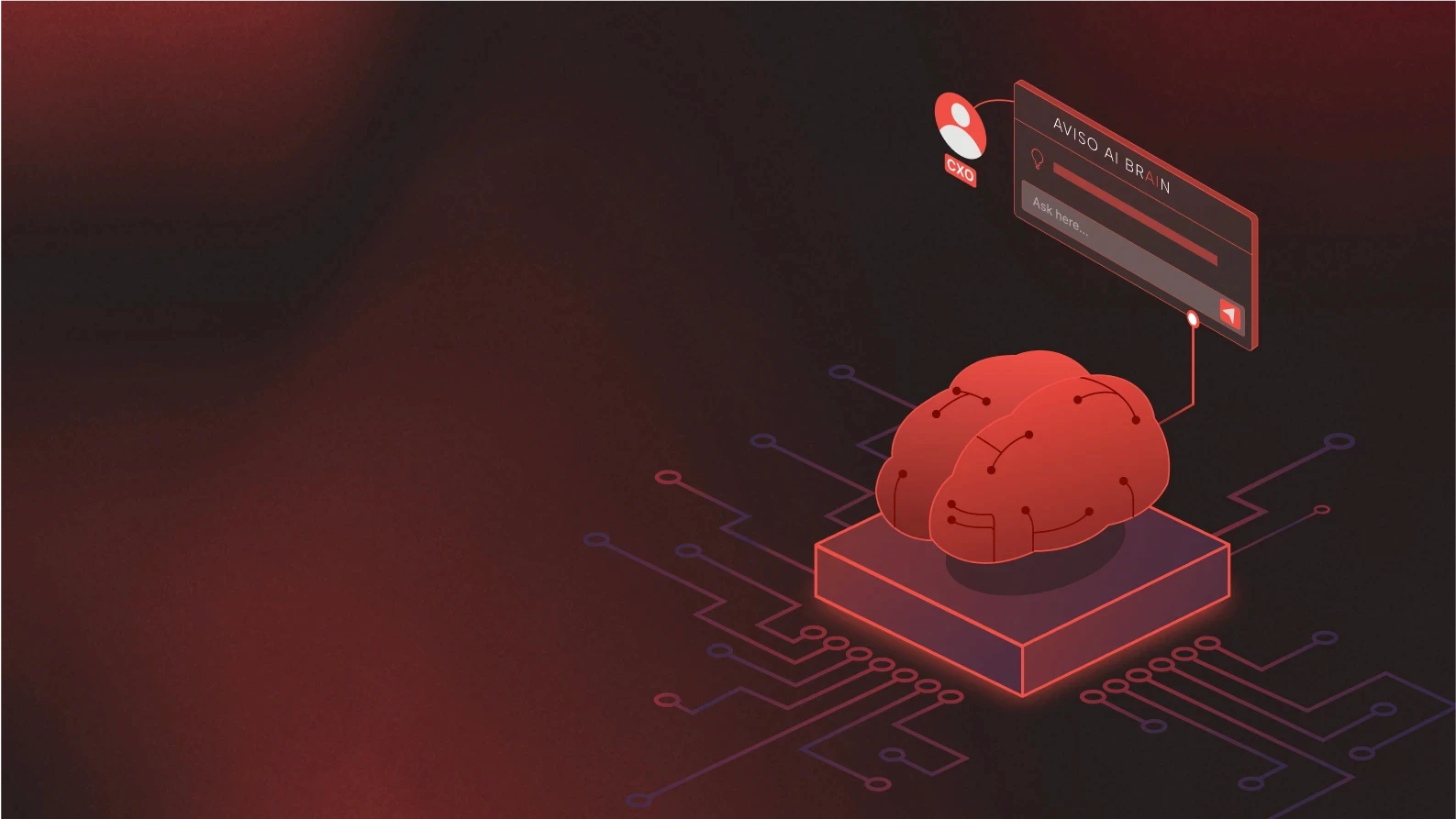AI Agents: The New Architects of Customer Success
Feb 5, 2025
Customer success is no longer just a post-sales function—it has evolved into a critical driver of revenue growth, customer retention, and brand loyalty. Customer Success (CS) teams are tasked with navigating a complex web of customer needs, unpredictable demands, and growing expectations for personalized and proactive support. Yet, despite the growing importance of this function, many customer success teams find themselves stuck in a cycle of inefficiencies, spending countless hours on repetitive tasks, grappling with fragmented data, and struggling to scale their efforts without sacrificing quality.
The journey through 2024 underscored just how challenging this role can be. With organizations facing financial pressures, the focus on efficiency, innovation, and an elevated customer experience has become more important than ever before. Traditional customer success models, even when augmented with basic AI solutions, often fail to rise to the challenge. These systems automate surface-level tasks or provide reactive, one-size-fits-all solutions, leaving teams ill-equipped to anticipate customer problems or take meaningful, data-driven actions. Moreover, basic AI models lack the sophistication needed to analyze complex data sets, understand nuanced customer behavior, or adapt to rapidly changing business dynamics, ultimately falling short of the expectations of today’s customers and organizations alike.
This is where advanced AI agents are stepping in to transform the customer success landscape. These intelligent systems go beyond the capabilities of traditional AI by leveraging Deep Learning, Natural Language Processing, and real-time analytics to offer proactive, scalable, and contextually relevant support.
Aviso’s agentic framework enables dynamic, personalized agentic workflows and actionable recommendations that drive top-line growth. By collapsing traditional software categories into a unified, intelligent system, they redefine the efficiency of the customer success teams.
Through this blog, we'll explore how AI agents are redefining the customer success function and uncover the potential this technology holds for elevating customer experiences.
How AI Agents are Revolutionizing Customer Success Teams
Traditional CRM systems, while foundational in managing customer relationships, rely heavily on manual processes, lack predictive capabilities, and focus more on reacting to problems than proactively addressing them.
Why Traditional CRM Fall Short
Despite their widespread use, traditional CRMs face several limitations:
Manual Data Input and Maintenance: Inputting and updating customer data manually is a tedious, error-prone process that drains valuable time and resources.
Limited Predictive Capabilities: These systems rarely anticipate customer behavior, such as churn risk or upsell opportunities, leaving revenue on the table.
Basic Workflow Automation: While offering some level of automation, traditional CRMs lack the intelligence to handle dynamic workflows or optimize complex customer processes.
Reactive Customer Management: CRMs focus on past interactions, which means that issues are addressed as they arise rather than being preemptively tackled by anticipating future problems.
AI agents bridge these gaps by offering real-time, predictive insights and automating tedious data entry and workflows, ultimately reimagining what customer success can achieve. AI agents can predict customer behavior, identify at-risk accounts, enhance renewal rates, assess customer health scores, and recommend proactive steps to boost satisfaction and retention.

Take, for example, Aviso's Virtual CSM, which acts as a personal digital assistant for Customer Success Managers, offering timely reminders and actionable insights to help you stay organized and prepared for key customer engagements. Virtual CSM ensures better customer engagement, proactive issue resolution, and data-driven decision-making throughout the customer lifecycle.
AI Agents: The Central Nervous System for Your Customer Data
Advanced analytics play an important role in understanding customer behavior, identifying trends, and making informed decisions. However, for AI systems to be able to provide accurate insights and predictions, they need clean and actionable data. For many organizations, though, data silos represent a significant hurdle. These silos occur when data is isolated in different systems or departments, limiting a company’s ability to gain a holistic 360-degree view of its customers.
AI agents serve as the central nervous system for customer data, breaking down silos and orchestrating a 360-degree view that empowers customer success teams to deliver exceptional experiences.
Automated Data Collection and Integration with AI Agents:
Data Consolidation: AI agents can seamlessly integrate data from various sources, including CRM systems, product usage logs, support tickets, surveys, financial records, and even social media interactions. This eliminates manual data gathering, which is time-consuming and prone to errors.
Real-time Updates: They can continuously monitor and update data in real-time, providing a dynamic view of customer health. This allows for timely interventions and prevents lagging indicators from skewing the score.
Data Cleaning and Preprocessing: AI agents can automatically clean and preprocess data, handling missing values, inconsistencies, and outliers. This ensures data quality and improves the accuracy of the health score.
Key Applications of AI Agents for Customer Success Managers

AI Agents and the Power of Automation in Customer Success
Automation with AI Agents further optimizes workflows, allowing CSMs to focus on higher-value, strategic activities. Tasks such as scheduling customer check-ins, generating account health reports, and drafting email responses are automated, freeing up time for more impactful endeavors.
By automating repetitive tasks and streamlining workflows, AI empowers CSMs to focus on strategic relationship-building and high-value activities.
Automation Use Cases with AI Agents in CSM:
Automated Onboarding: AI can automate key aspects of the onboarding process, such as sending welcome emails, scheduling training sessions, and providing access to relevant resources. This ensures a consistent and efficient onboarding experience for every new customer.
Proactive Check-ins: AI agents can automatically schedule and trigger check-in reminders for CSMs, ensuring timely communication and preventing customers from falling through the cracks. They can even suggest talking points based on the customer's recent activity and health score.
Automated Reporting and Analytics: AI can automate the generation of customer health reports, freeing CSMs from manual data gathering and analysis. This allows them to quickly identify trends, potential issues, and opportunities for improvement.
Ticket Routing and Prioritization: AI can analyze incoming support tickets and automatically route them to the appropriate CSM based on their expertise and the customer's history. This ensures faster resolution times and improves customer satisfaction.
AI Agents: The Analytical Powerhouse of Customer Success
Customer Success teams constantly strive to better understand their customers, predict their needs, and ultimately ensure their long-term satisfaction. AI agents move beyond simple reporting and offer deep insights that empower Customer Success Managers (CSMs) to be more proactive and effective.
Advanced Analytics and Insights with AI Agents:
Feature Engineering: AI agents can automatically identify and engineer relevant features from raw data. This involves creating new variables that better capture customer behavior and predict future outcomes (e.g., "days since last login," "number of support tickets in the last month," "feature adoption rate").
Predictive Modeling: They can apply machine learning algorithms (e.g., regression, classification, clustering) to build predictive models that assess customer health. These models can identify patterns and correlations that might be missed by manual analysis. For instance, an AI agent might discover that a combination of declining feature usage, increased support tickets, and delayed payments is a strong indicator of potential churn.
Churn Prediction and Prevention: By analyzing customer data, AI can predict which customers are at risk of churning and automatically trigger alerts for CSMs to take proactive steps to retain them. They can also explain why a customer is considered high-risk, enabling targeted interventions. This could involve offering discounts, providing additional support, or simply reaching out to address any concerns.
The Role of AI Agents in Building a Truly Customer-Centric Platform
True personalization at scale requires much more than surface-level automation. It demands a deeper understanding of the prospect’s context and the ability to tailor communication effectively. You can not personalize for a prospect without having a full, rich history of that prospect.
AI agents analyze customer behavior, preferences, and even their sentiments to deliver personalized content across various touchpoints. This could include product recommendations tailored to their past purchases or browsing history, onboarding guides that address their specific use case, or educational content that helps them maximize the value of the product.
Instead of broad, one-size-fits-all approaches, teams can tailor their interactions based on individual customer needs, preferences, and risk levels. This high level of customization significantly improves the customer journey, making it more relevant and engaging, ultimately boosting product adoption and customer satisfaction. By delivering the right content at the right time, AI agents empower CSMs to provide proactive and highly effective support.
Here are a few use cases of AI agents for CSMs in providing tailored experiences:
Personalized Recommendations: They can recommend specific actions that CSMs can take to improve customer health, such as scheduling a check-in meeting, offering additional training, or suggesting relevant product features.
Personalized Email Campaigns: AI can segment customers based on their needs and preferences and then automate the delivery of personalized email campaigns. This ensures that customers receive relevant information and offers, increasing engagement and conversion rates.
Tailored Onboarding Experiences: Automatically generate onboarding guides customized to a customer’s specific industry, product configuration, and role within their organization.
Segment-Specific Models: Different customer segments have different needs, priorities, and usage patterns. AI agents can address this by building separate health score models for each segment. This ensures that the health score is relevant and meaningful for each group of customers.
Ultimately, AI-powered personalization builds deeper engagement by tailoring customer experiences to their unique needs and preferences. However, balancing hyper-personalization with trust and compliance presents a significant challenge. While customers expect personalized experiences, they are also increasingly vigilant about how their data is used. Every piece of information that is entered into a general-purpose tool is company IP that needs to be protected.
Aviso has a robust framework for implementing different control measures to secure data and avoid data breaches. We adopt transparent data practices and ensure compliance with privacy regulations like GDPR, SOC2, and CCPA, maintaining trust while delivering meaningful personalization.
How to Become a Proactive Customer Success Manager with Aviso’s Agentic Workflows
As AI agents seamlessly integrate with existing CRM systems, they become pivotal in transforming CS teams from reactive processors to proactive problem solvers, thereby significantly enhancing organizational efficiency and customer satisfaction.
This transformation allows CSMs to:
Identify risk early: AI-powered insights eliminate the guesswork by flagging accounts needing immediate attention.
Streamline workflows: Automated workflows replace the time-intensive manual processes traditionally associated with identifying churn risks.
Enhance customer retention: Equipped with actionable insights, CSMs can engage proactively with high-risk accounts, improving overall retention outcomes and boosting customer satisfaction.
Aviso’s Agentic Workflows harness artificial intelligence, machine learning, and robotic process automation to enhance customer success intelligence. By automating routine tasks, providing proactive insights, and generating personalized recommendations, Aviso's agentic workflow empowers CSMs to be more strategic, efficient, and effective across all stages of the customer journey.
Benefits of AI Agents Across All Stages of the Customer Journey

The Agentic Future of Customer Success
As customer success continues to evolve from a support function to a strategic driver of growth, AI agents are proving indispensable in reshaping how businesses engage with their customers. By addressing the inefficiencies of traditional CRMs, breaking down data silos, and delivering hyper-personalized, proactive solutions at scale, AI agents empower teams to go beyond reactive problem-solving. They enable customer success managers to anticipate needs, optimize workflows, and enhance the overall customer experience, all while driving meaningful business outcomes.
With solutions like Aviso’s Agentic Workflows for CSMs, organizations can harness AI's transformative potential to build truly customer-centric platforms that prioritize efficiency, trust, and personalization. Embrace this future and transform customer success into a competitive advantage. Book a demo with Aviso today.






